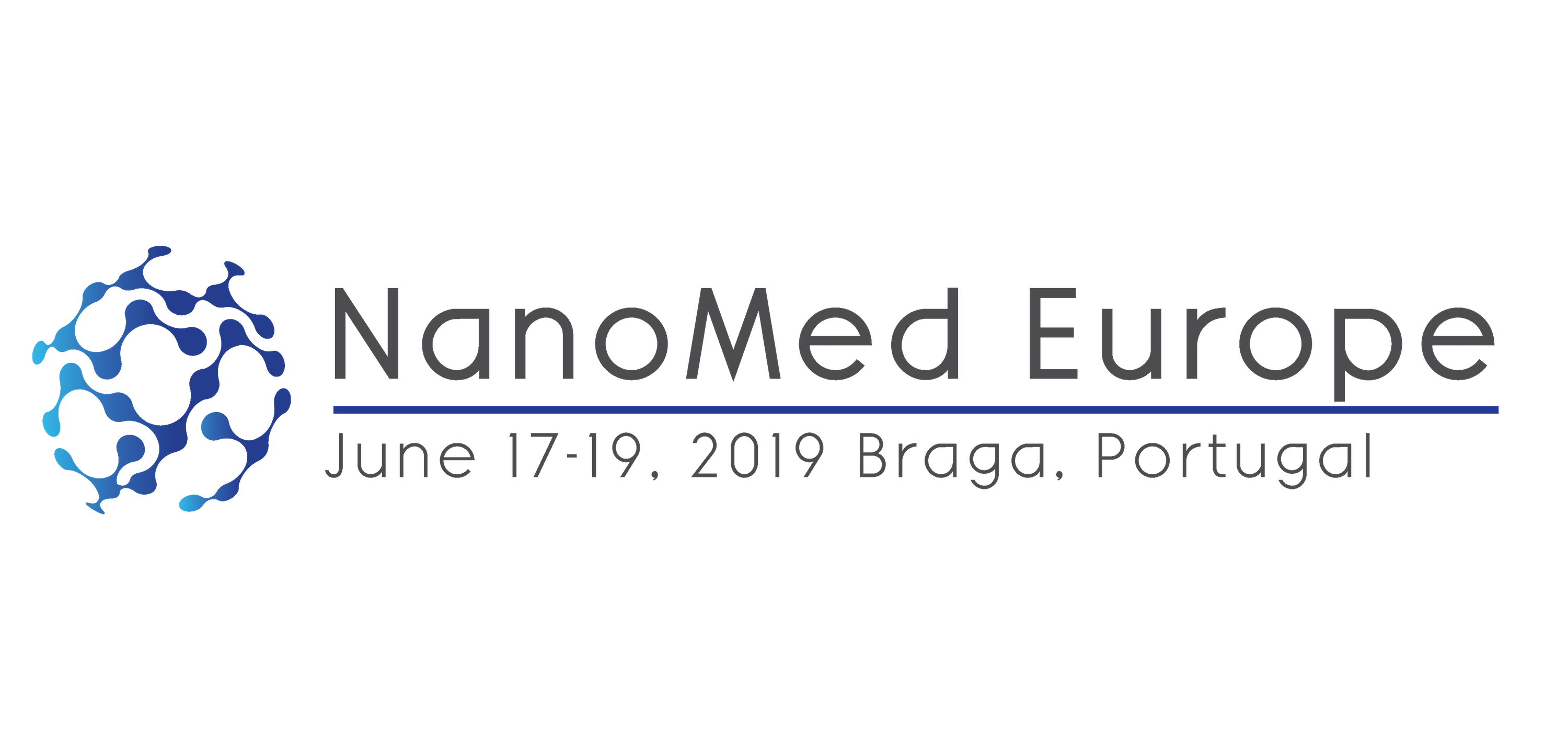Speakers
Meet the inspiring speakers who will inform you about the latest trends and success stories in Nanomedicine and emerging Medtech at NME19!

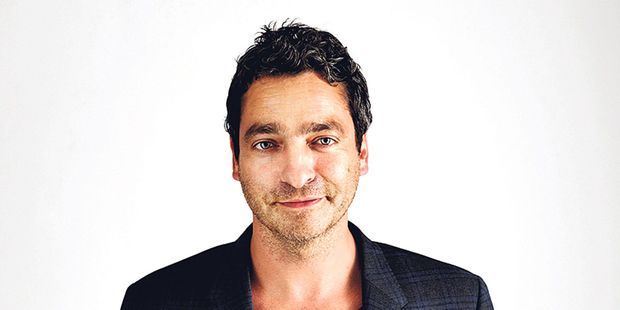
PLENARY SPEAKER: Laurent Lévy
CEO and founder, Nanobiotix
Laurent holds a doctorate in physical chemistry, specialized in nanomaterials, from the Pierre and Marie Curie University (Paris) and from the CEA (Commissariat à l’Énergie Atomique et aux Énergies Alternatives) and a DEA (advanced studies and diplomas) in physics of condensed matter from the UPVI-ESPCI (Paris). He has extensive experience in sciences and techniques related to nanotechnologies, a field in which he worked for more than 10 years. His research at the frontier of biotechnology and nanotechnologies has resulted in the development of a number of concrete applications such as NanoXray, which could open a new method for cancer treatment.
For many years, Laurent was a consultant in the development of application of nanotechnologies with large companies such as Sanofi (pharma), Guerbet (medical imaging), Rhodia (chemistry), as well as for biotechnology start-ups. Laurent is the author of 35 international scientific publications and communications, has applied for several patents and completed his training by a post-doctoral fellowship at the Institute for Lasers, Photonics and Biophotonics, SUNY (State University of New York), Buffalo, USA.
PLEANARY SPEAKER on May 17 @ 4:00pm:
“NanoXray : from the idea to the market / Behind the scenes.”
KEYNOTE SPEAKERS
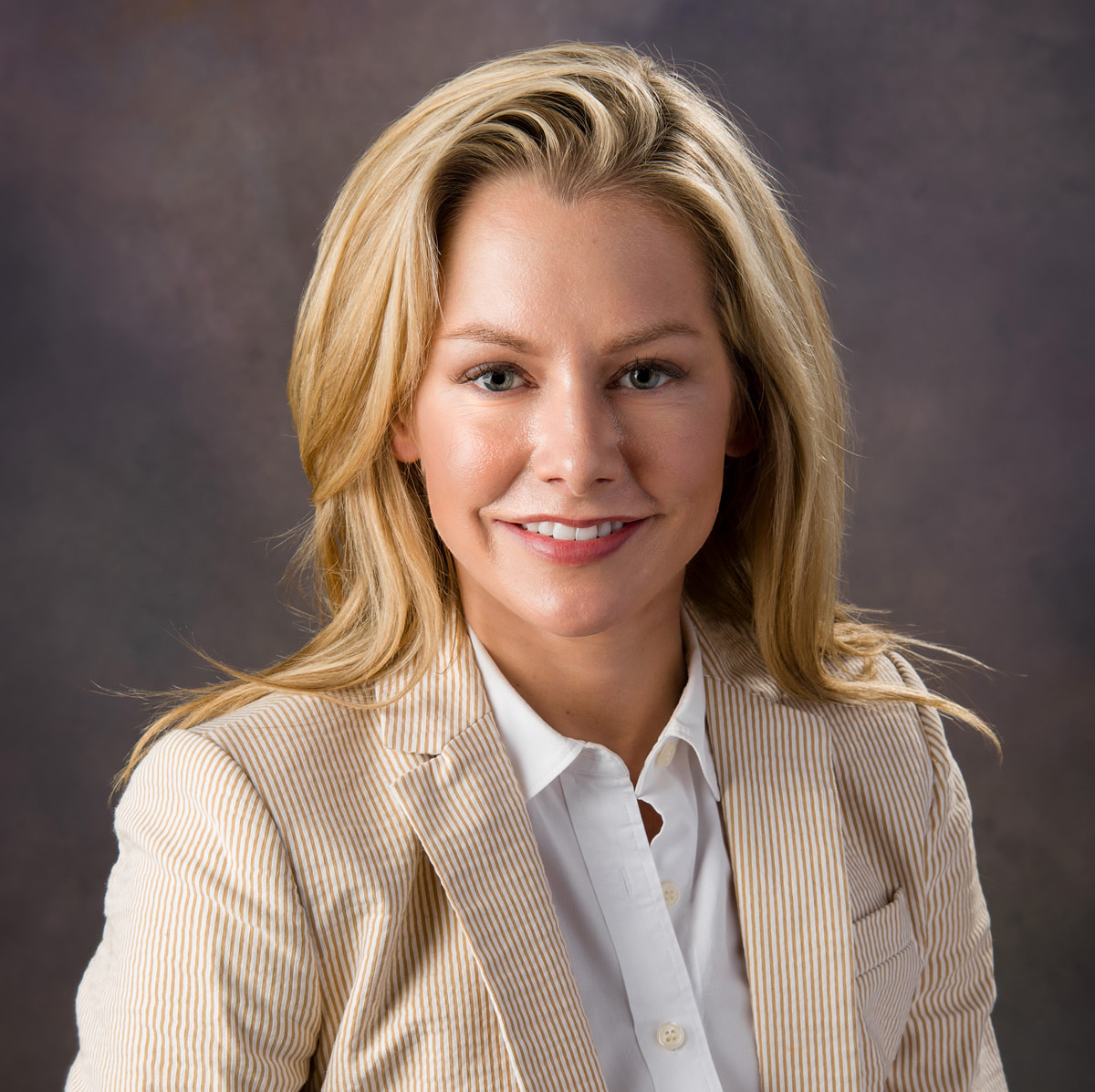
Jennifer Grossman
Senior Scientific Program Manager at NIH/NIAID
Jennifer Grossman, PhD is a Senior Scientific Program Manager in the Vaccine Translation Research Branch (VTRB) in the Division of AIDS of the National Institute of Allergy and Infectious Disease (NIAID), one of the US National Institutes of Health (NIH). She oversees the production of a large portfolio of investigational HIV vaccine products, including nanoparticles, peptide and protein immunogens (monomers, trimers, germline-targeting, lineage-based, epitope-based), viral vectors, DNA, RNA, and adjuvants. Jennifer provides nanotechnology subject matter expertise for R&D, manufacturing, analytics, formulation, Q/A and regulatory support for HIV vaccine products. Before joining the VTRB, Jennifer was at the National Cancer Institute (NCI), where she led alliance management for the Nanotechnology Characterization Lab (NCL). There, she established and managed productive collaborations within NCI, FDA, NIST and a network of over 150 drug development labs in industry and academia. Jennifer’s areas of scientific expertise include analytical methods for assessing drug delivery systems and modeling of nanoparticle structures and interactions. She has experience in a variety of issues related to nanotech drug development and regulation. Prior to joining the NCL in 2006, Jennifer conducted research in Physical Chemistry at the University of Maryland, where she focused on modeling and measuring protein motion under the guidance of Dr. David Fushman, Professor of Biochemistry. She holds a Ph.D. in Physical Chemistry, an M.S. in Chemical Physics and a B.S. in Physics.
KEYNOTE SPEAKER on June, 18th @4:00pm
“Nanomedicine against antimicrobial resistance and infectious diseases”
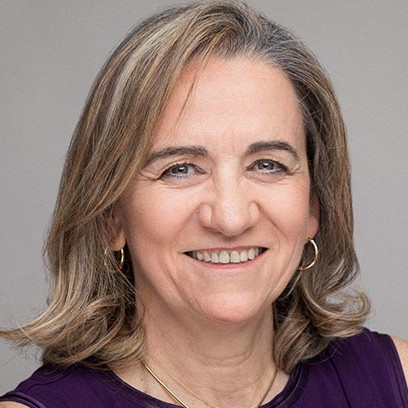
Maria Jose Alonso
Full Professor at University of Santiago de Compostela, Spain (USC)
María José Alonso’s lab has pioneered numerous discoveries in the field of Nanopharmaceutical Technology and nanomedicine. She has coordinated several research consortia financed by the WHO, the Gates Foundation and the European Commission. Currently, she is involved in 7 international projects. She is the author of over 267 scientific contributions with more than 16,400 cites (H factor 71) and the inventor of 20 patent families. Because of the quality of her scientific articles she has been among the TOP TEN in Pharmacology (Times Higher Education international ranking, 2010). She is currently President of the Controlled Release Society. She also serves on the editorial board of 11 journals. In 2006-10, she was the Vice-rector of Research and Innovation of the USC. She is a fellow of the American Institute for Medical and Biological Engineering (AIMBE) and of the Controlled Release Society, a member of three Academies in Spain and a member of the US National Academy of Medicine (NAM)..
KEYNOTE on June, 19th @9:00am
“Multifunctional Polymeric Nanocapsules for the Targeted Delivery on Oncological drugs- Learning from Euronanomed“
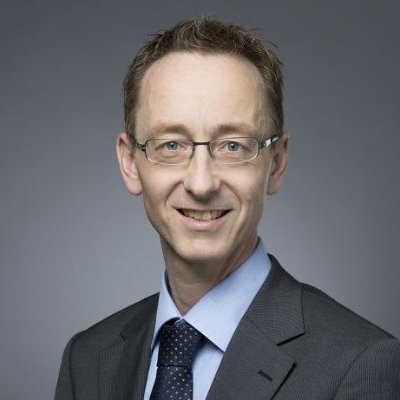
Olivier T. Guenat
CEO at AlveoliX AG & Head Organs-on-Chip Technologies, Medical Faculty, University of Bern
Olivier Guenat was born in Biel-Bienne and received his engineering degree (HTL/ETS) in Microtechnology from the University of Applied Sciences in Bienne in 1990, his MSc degree in Physics and Electronics from the University of Neuchâtel in 1995, and his PhD degree in Micro- and Nanotechnology in 2000 from the same institution.
After his PhD, he was awarded an advanced fellowship from the Swiss National Foundation and pursued his postdoctoral studies at Harvard Medical School. There, he developed microfluidic systems aimed at monitoring cell signals. He then hold an Assistant Professor position at the Ecole Polytechnique in Montréal (Canada), where he founded and led the BioMEMS research laboratory until 2009. From 2009 to 2011, he returned to Switzerland and helped develop the Nanomedicine Division of CSEM SA, as Head of the Cell Systems Section. In November 2010, while still being active at the CSEM he was asked to set up the ARTORG Lung Regeneration Technologies activities within the framework of a contract between the University of Bern and the CSEM. In 2012, he decided to focus on his activities at the ARTORG Center. Today, his research aims at developing advanced in-vitro systems that better mimic the in-vivo conditions of the lung.
KEYNOTE on June, 19th @ 9:30am
“Mimicking the lung parenchyma with organs-on-chip technologies”
INVITED SPEAKERS
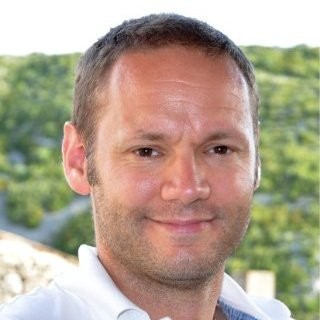
Simon Baconnier
TNA manager at EUNCL
Scientific by training (PhD in Biophysics,) has move to international and transversal collaboration. Simon has been involved in about 10 different EU projects including 4 in the nanomedicine field (NANO2LIFE, EUNCL, NOBEL, REFINE). Simon has experienced different industrial environment, including the start-up environment (Genopôle Start up cluster and Antineo) and the pharma company (OncoTherapy Science France).
His different experiences are connected by a medical innovation thread including nanotechnologies.
Simon most recent position as EUNCL operational coordinator puts him at the forefront of nanotechnology for medicine developers in a multidisciplinary environment including physics, chemistry, and biology as well as regulatory, medical development and production. With a clinical sensitivity Simon has worked and is still working at the bridging of these different community on a daily basis to serve the nanomedicine and biomedical stakeholders.
Invited speaker on June 18 at 10:30AM
“The European Nanomedicine Cahracterisation Laboratory (EUNCL) review after 4 years: successes and lessons learned”
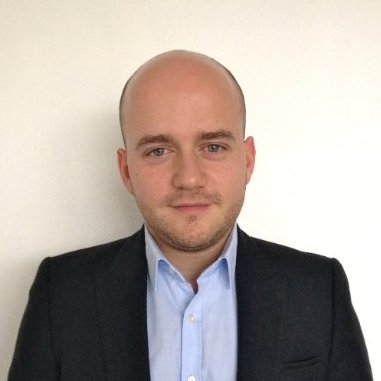
Alexandre Ceccaldi
General Secretary of the ETPN / Coordinator of the NOBEL Project
Alexandre Ceccaldi is the General Secretary of the European Technology Platform on Nanomedicine (ETPN) since 2015 and coordinator of the NOBEL European Project since 2017.
He holds a doctorate in biology (University Pierre and Marie Curie, Paris) and an engineering degree from Agro ParisTech, with experience in anticancer strategies, industrial management and innovative design. Previously, he has managed INGESTEM, the first French national public consortium entirely dedicated to the R & D on induced pluripotent stem cells and their medical applications .He is currently responsible for the management and development of the secretariat of the Paris-based ETPN, and provides strategic and operational support to a community of more than 120 member organizations of the European nanomedicine ecosystem, in coordination with the board of directors of the platform.
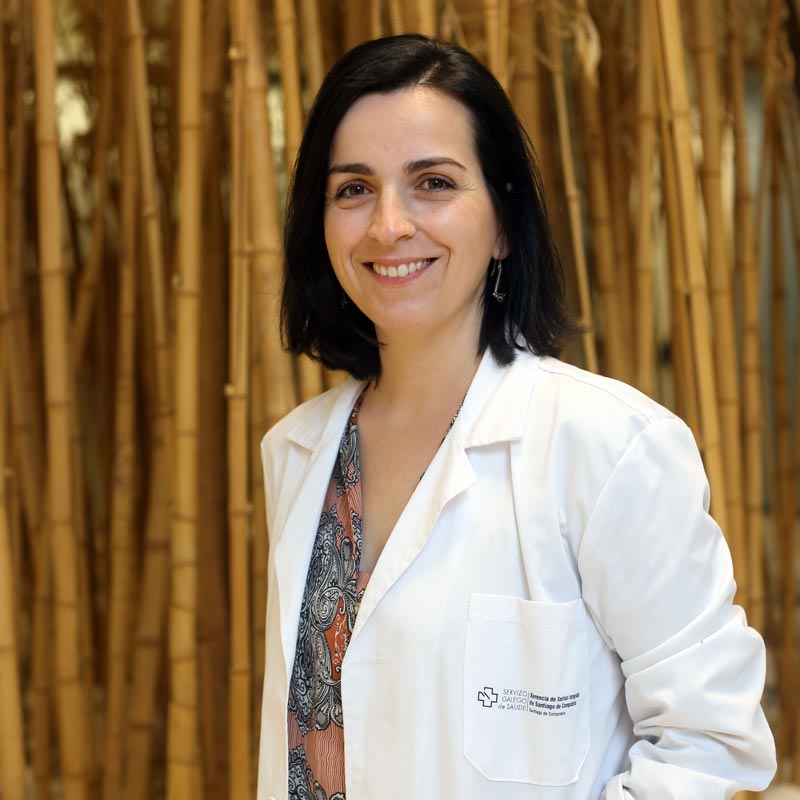
Maria de la Fuente Freire
Head of the Nano-Oncology Unit, ONCOMET, Health Research Institute of Santiago de Compostela (IDIS)
Invited speaker on June, 18th @ 9:00am
“Nanomedicine strategies to improve outcomes in metastatic cancer”

María Tomás Gamasa
Research Fellow at University of Santiago de Compostela
Dr. Tomás Gamasa presents a quite unique multidisciplinary training in the fields of Organometallic catalysis, Bio-supramolecular Chemistry and Chemical Biology.
She completed her Ph.D. in 2011 as FPU fellow at University of Oviedo. The doctoral studies were focused on the design and development of synthetic methodologies. She performed several research stages at different national and international institutions. In 2011, she joined Professor Thomas Carell group at LMU Munich as Post-Doctoral Research Humboldt fellow. Her work was centered on DNA modifications for the expansion of the genetic code.
During her reincorporation as Juan de la Cierva fellow in the group of Prof. J. L. Mascareñas (USC, CIQUS institute) in 2015 she started working on the translation of chemical reactions to cellular environments. While this research can be ascribed to the realm of fundamental science and seeks to explore how far can scientists stress living systems to accept artificial catalytic processes, the resulting knowledge might lead to the development of new cell reactivity patterns and new tactics in biomedicine, for instance, for the regulated productions of multiple, different drugs in an orthogonal manner, opening new avenues for biological manipulation of living systems.
Invited speaker on June 19 at 11:30AM
“Bioorthogonal transition
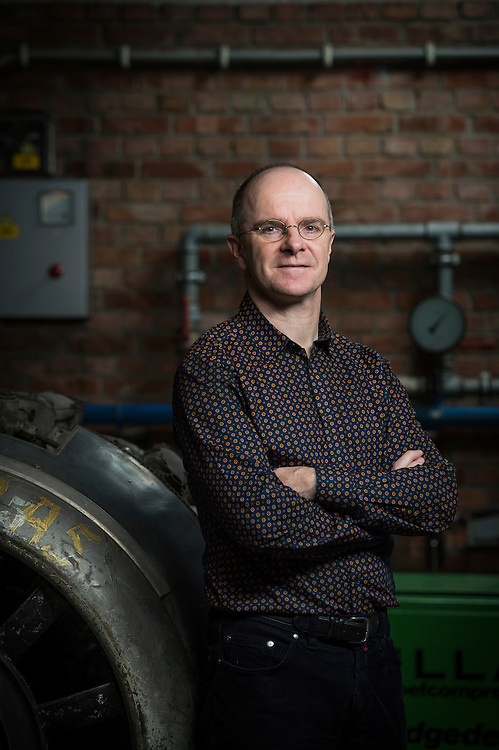
Uwe Himmelreich
Coordinator MoSAIC at KU Leuven
Prof. Dr. Uwe Himmelreich graduated in Physical Chemistry in 1989 and obtained a Ph.D. degree in the same field from the University of Leipzig in 1994. His main field of expertise is magnetic resonance (MR) spectroscopy and MR imaging, ranging from isolated compounds to cells, preclinical disease models and patients. He was a lecturer at the University of Sydney, Australia and a senior scientist at the Max-Planck Institute for Neurological Research in Cologne, Germany before joining
the University of Leuven. Since 2007, he is Professor at the University of Leuven (KU Leuven), Department of Imaging and Pathology. He heads the Biomedical MRI group and is coordinator of the KU Leuven core facility Molecular Small Animal Imaging Center (MoSAIC). His research focusses
mainly on the development and optimization of preclinical imaging methods and the development and assessment of imaging contrast agents (including theranostic agents). He has extensive expertise in the field of cell labelling and cell tracking using nanoparticle based approaches. While his original focus was on MRI/MRS, he works now intensively in multimodal imaging and contrast approaches,
combining MR with optical imaging, CT, PET and ultrasound. He continues to work on the validation of novel contrast agents, in particular nanoparticle based agents.
Invited speaker on June, 19th @ 5:00PM
“Imaging and Nanomedicine: Promises and pitfalls”
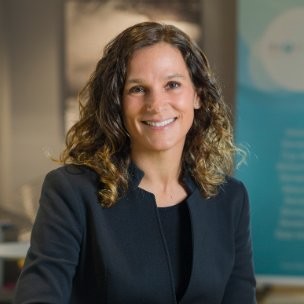
Iraida Loinaz
Director of the CIDETEC Institute for Nanomedicine en Fundación CIDETEC
Organic chemistry by training, Iraida Loinaz led the Biomaterials Unit of CIDETEC since its inception. In the last years, with a high translational vocation, she manages the CIDETEC Nanomedicine Institute. The unit has created spin off companies, licenced two technologies. She’s coordinator of three EU funded projects, including Nanopilot and TBMED.
Invited speaker on June 18 @ 10:40AM
“NanoPilot: Pilot Plant for the GMP Production of Polymer-based Nanopharmaceuticals”
& on June 19 @ 12:10AM
“An Open-Innovation Test Bed for Medical Devices: Kick-off for new EU Research Project TBMED
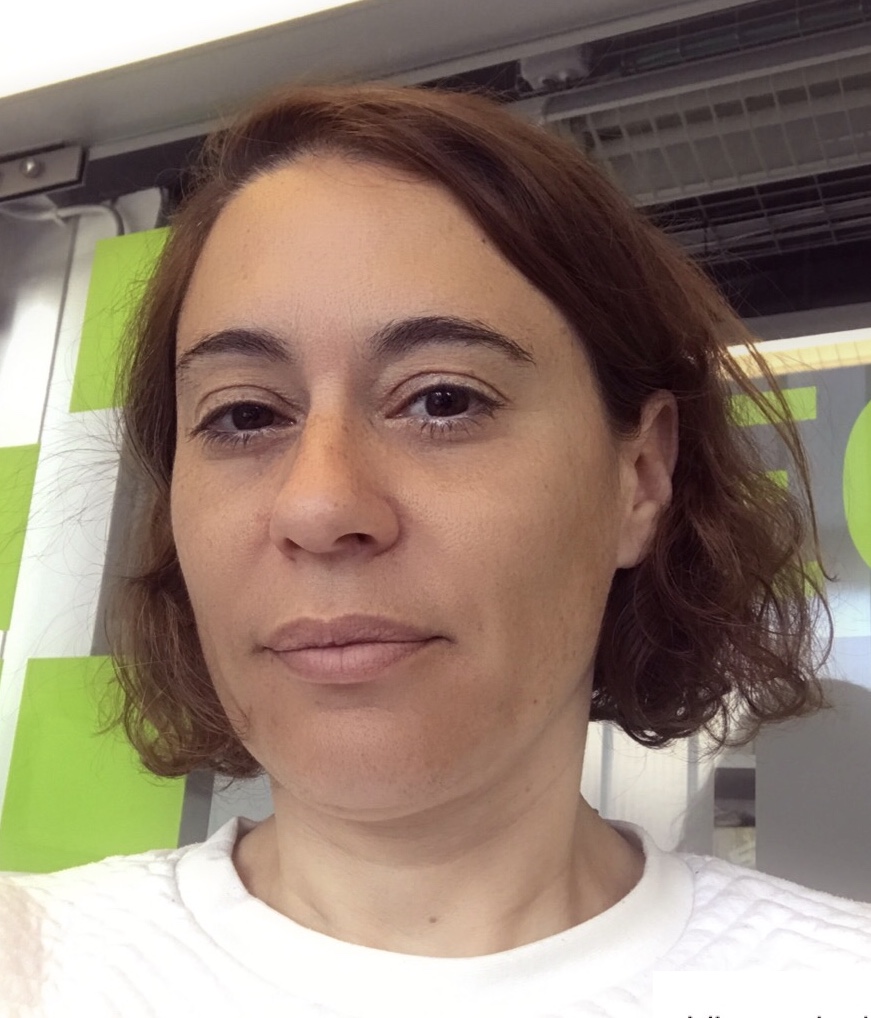
Elena Martínez
Senior Researcher, Nanobioengineering en Institute for Bioengineering of Catalonia (IBEC)
After finishing my BSc in Physics, I started my scientific career completing a PhD in Materials Science in 2001 (University of Barcelona, Spain), focused on the study of the mechanical and tribological properties of thin films by nanoindentation technique. Afterwards, I was engaged as a postdoc associate at the Laboratoire de la Matière Complexe, led by Prof. Francis Levy, at the École Polytechnique Fédéral de Lausanne (EPFL, Switzerland). There, I worked with nanostructured materials based on chromium nitride (CrN). In 2003, I received a “Ramon y Cajal” grant to lead a five year research project on the micro and nanostructuring technologies of polymer materials at the Barcelona Science Park (www.pcb.ub.es). It meant building the facilities and expertise in the newer micro and nanofabrication techniques for biomedical applications such as soft lithography, microfluidics, microcontact printing, nanoimprint lithography, focused ion beam nanolithography and dip-pen nanolithography. In 2008, I joint as Senior Researcher the Nanobioengineering group of IBEC led by prof. J. Samitier. There, I have been developing micro and nanopatterning techniques for cell culture applications as an independent research line. In 2013, I was formally able to constitute my own independent research group, “Biomimetic systems for cell engineering”, by being appointed as a “Junior Group Leader” at the Institute for Bioengineering of Catalonia (IBEC).
Invited speaker on June, 18th @ 5:00PM
“Engineering biomimetic 3D models of intestinal epithelium”
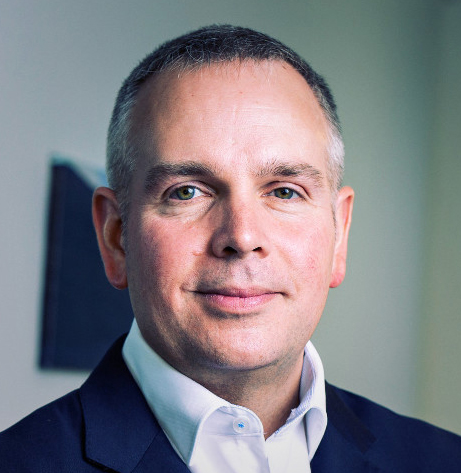
Eric Mayes
CEO at Endomag, expert of the HealthTech TAB
Dr Mayes has over 20 years’ experience in developing and leading materials technology companies. Prior to joining Endomag as CEO in 2010, Eric held executive positions in Cambridge Display Technology (CDT) and NanoMagnetics. He was named the Royal Society of Chemistry’s ‘Entrepreneur of the Year 2003’ for his founding role in NanoMagnetics. Eric is an advisor to the University of Texas at Austin’s ‘Texas Health Catalyst’ and the European Healthtech Translation Advisory Board (HealthtechTAB). A US-UK dual national, he holds a BSc in Physics from Arkansas State University and a PhD in Chemistry from the University of Bath. Eric is a Fellow of the Royal Society of Chemistry.
Invited speaker on June, 18th @ 12:30
“Taking a nanoparticle medical product to the international market”
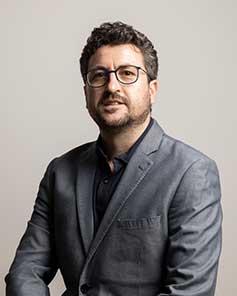
Miguel Oliveira
Research Institute on Biomaterials, Biodegradables and Biomimetics of the University of Minho
Miguel Oliveira, graduated in Biochemistry at the Faculty of Sciences from the University of Porto. He holds a Post-Graduation in Biomedical Engineering from the Faculty of Engineering, University of Porto and a PhD in Materials Science and Technology, Tissue Engineering and Hybrid Materials in the Dept. Polymer Engineering, University of Minho. He is one of the editors of the book Making Research Visible to the World, In Canon Foundation in Europe, Canon Alumni Book, eds.
Invited speaker on June, 18th @ 1:30pm
“Dendrimer Nanoparticles for intracellular delivery and tissue engineering application”
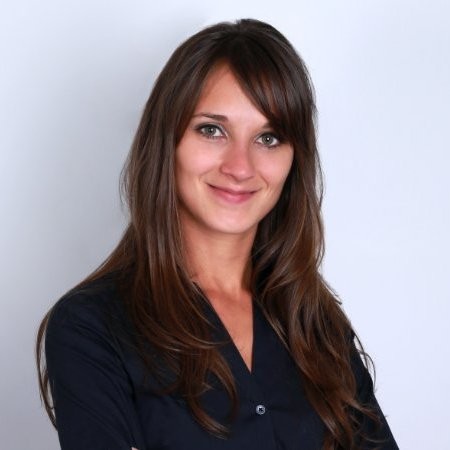
Priscilla Pagnacco
Marketing product manager at Pixium Vision
Graduated from Sorbonne University of Paris in health marketing and management, Priscilla starts her career working in innovative medical devices at Boston Scientific in Peripheral Vascular stents as a product manager. After one year of experience in the United States at Marketing department of EOS Imaging, a breakthrough and the leader in low dose 3D medical imaging, she enter in Pixium Vision to bring international disruptive innovations like PRIMA to the market.
Invited speaker on June 18 at 3:15PM
“PRIMA a photovoltaic sub-retinal microchip retinal implant and a brain-machine interface for dry AMD (Age Macular Degeneration)”
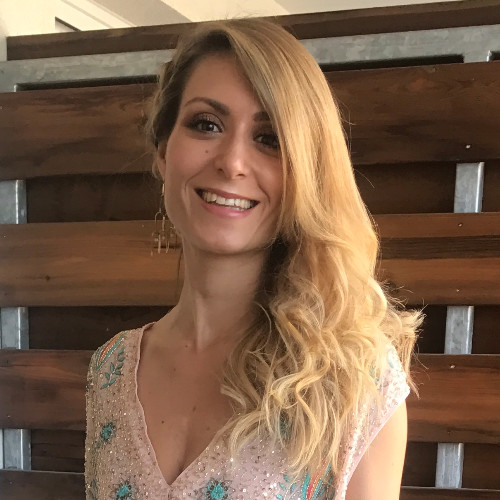
Camille Roesch
Global sales & scientific activities director EMEA region at Izon Science Europe Ltd
Dr Camille Roesch is the global sales and scientific activities director within the EMEA region for Izon Science Europe Ltd. She’s been leading the main European’s laboratory located in Lyon, France since September 2015 and was the European application scientist for 2 years before that.
Before joining Izon Science, Camille completed her PhD in Drug delivery, mainly focused on Nanotechnologies, at the University of Strasbourg in September 2013. Camille led the consultancy for the human health nanoregulatory strategy on behalf of the Australian Pesticides and Veterinary Medicines Authority and she is one of the authors of the Australian government’s human health and environmental risk assessment concept report. She is also co-author of 3 book chapters for the Merck Veterinary Manual, on ‘Drug action and Pharmacodynamics’, ‘Potential Uses of Nanotechnology in Veterinary Medicine’ and ‘Dosage Forms and Delivery Systems’.
In her oral presentation, she will highlight the benefits of using the Tunable Resistive Pulse Sensing principle (TRPS) when used for accurate, high-resolution particle analysis (size, size range, concentration, and electrophoretic mobility) and normalization.
Invited speaker on June 18 at 6:15PM
“RPS: High precision characterization for nano and micro particles”
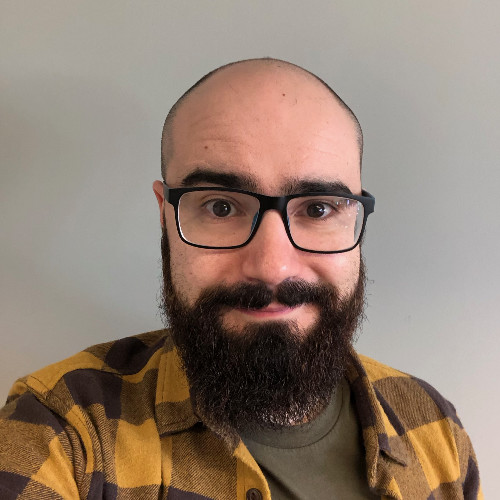
Rui Sousa
Tech Transfer Officer & Program Manager at TecMinho
Rui Sousa is a Technology Transfer Officer with over 4 years of experience in the field. Rui is responsible the management of the innovation portfolio of the University of Minho, managing the full process from scouting new technologies until market uptake. Rui also acts as an industry liaison, establishing strategic R&D partnerships between the University and industry, solving clients’ problems through innovation
Rui is also involved in project NOBEL, a Coordination and Support Action sponsored by the European Commission, managing the operation of the HealthTechTAB, Europe’s first Translation Advisory Board for health technologies, overseeing all communication, brand and community-building actions for the tool.
Invited speaker on June 18 at 10:00am
“The HealthTech Translation Advisory Board (TAB)!”
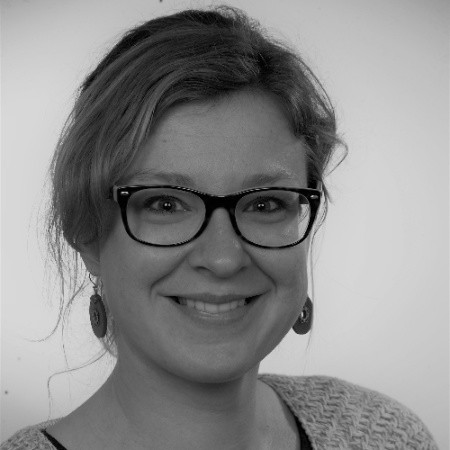
Kathleen Spring
Program manager at Bioanalytik Münster
Kathleen Spring, PhD, program manager at Gesellschaft für Bioanalytik Münster e.V. in Münster, Germany. Bioanalytik Münster is a is a non-profit organisation. It’s a regional network which was initiated in 2000 by local universities, research centres, enterprises, transfer institutions and investors to promote science, research and education in the field of (nano) bioanalytics in Münster region. They provide a central communication and information platform for scientists, entrepreneurs, investors and members of the public who are interested in bioanalytics. Bioanalytik Münster is involved as a partner in 3 EU-funded projects. EU-NCL and REFINE are projects initiated by the nanomedicine community, helping the nanomedicine community to prepare products for regulation and on the other hand to create a regulatory science framework for the risk-benefit assessment of nanomedical products. The third project is the Coordination and Support Action (CSA) NOBEL which wants to build a unique ecosystem in Europe for health technologies by developing a joint strategic vision of the key enabling technologies (KETs). She holds a Diploma (2007) in Human Biology of the University of Greifswald, Germany and a PhD (2012) in Molecular Biology of the University of Montreal, Canada. Since 2017, she is a program manager at Bioanalytik Münster and mainly involved in the CSA NOBEL. Since then she’s also a member of ETPN. She has experience in science and research as well as in organisation and managing.
Invited speaker on June 18 at 2:30PM
“The Continuum of Care: why emerging medical technologies revolutionize healthcare”
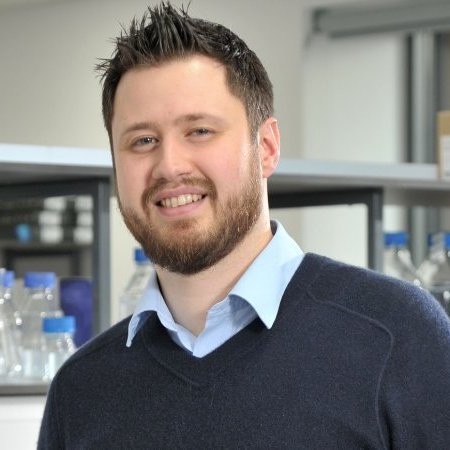
Graeme Stasiuk
Non-Clinical Lecturer in Molecular Imaging at University of Hull
Dr Graeme Stasiuk was appointed as Non-Clinical Lecturer in Molecular Imaging at the University of Hull, in the School of Life Science in June 2014. He has seven years of research experience, post PhD, into the design, synthesis and development of molecular imaging agents for all modalities. Following a year at the French Alternative Energies and Atomic Energy Commission (CEA) in Grenoble, developing multimodal nanoparticle MR/Fluorescent contrast agents, he joined Professor Nick Long’s group at Imperial College London in 2011 as Post-Doctoral Research Assistant, this work was focused on multimodal and targeted imaging.
Invited speaker on June, 18th @ 9:00am
“Development of PDT based theranostics”
SELECTED SPEAKERS
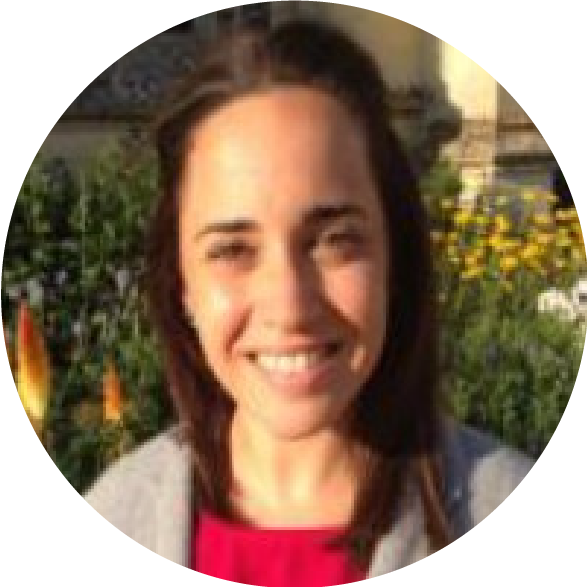
Abalde-Cela, Sara
INL

Arieh Eden
Carmel Lady Medical Center
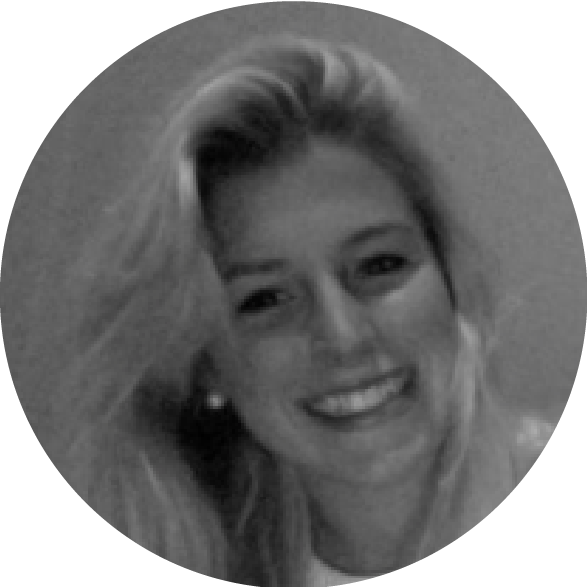
María Aymerich
Photonics4Life, USC
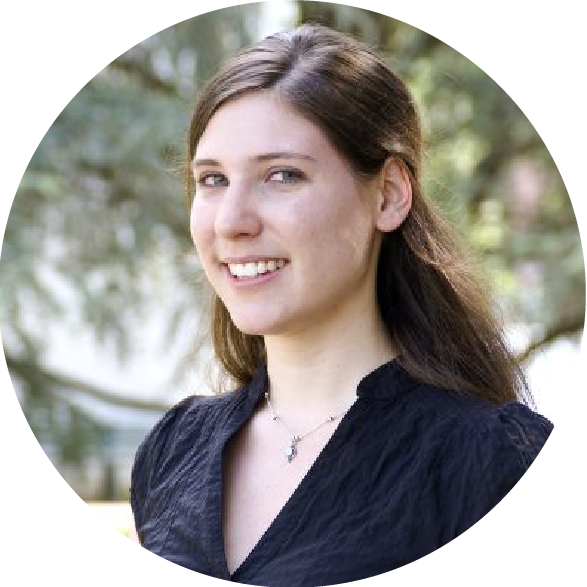
Regina Bleul
Fraunhofer IMM
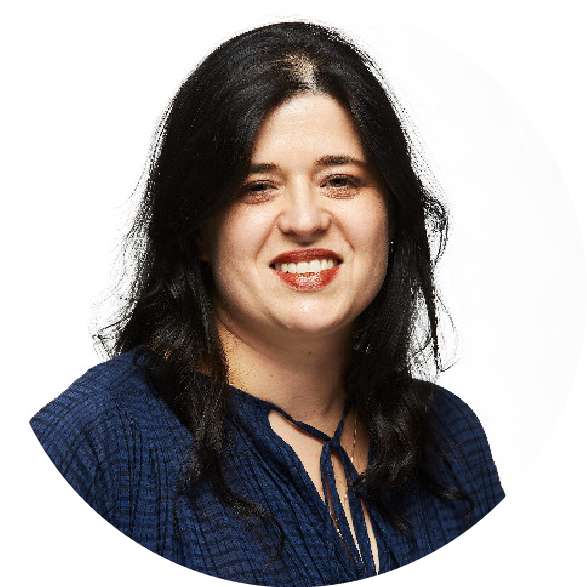
Mariana Carvalho
INL
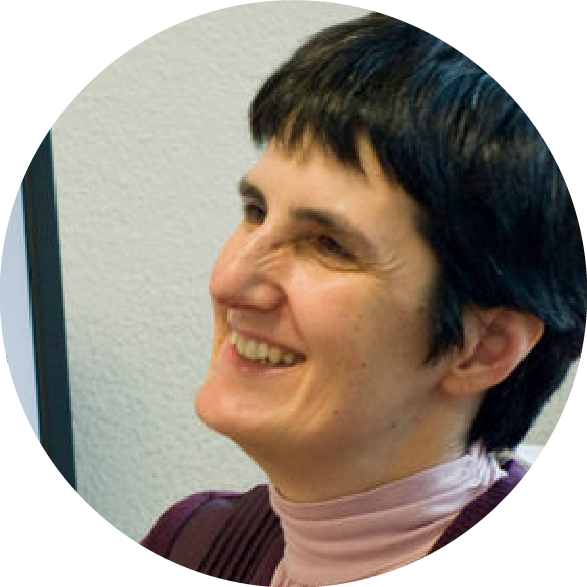
Eva Cernadas García
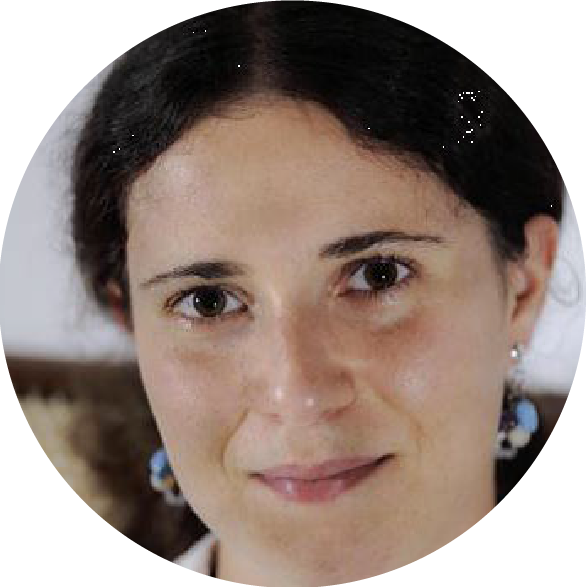
Fanny Caputo
CEA Leti / EUNCL
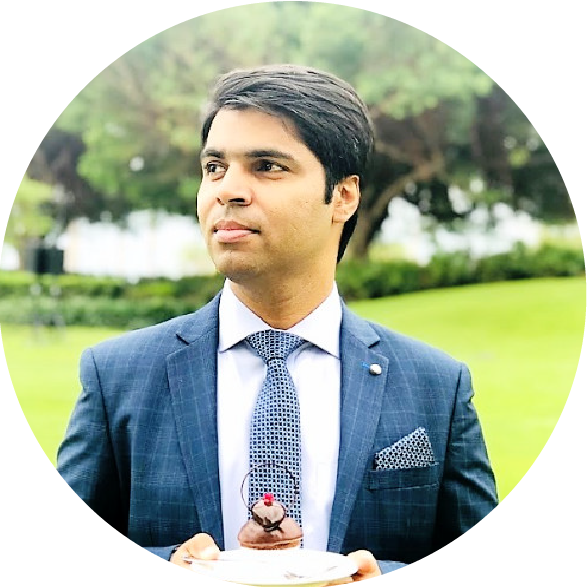
Awais Farid
INA
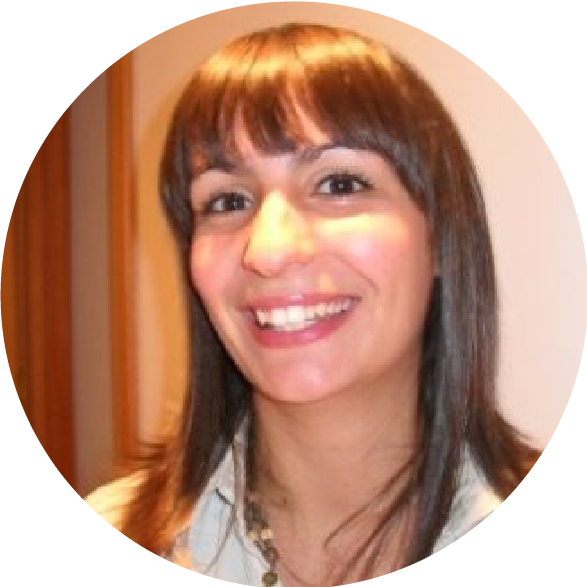
Vera Faustino
Universidade do Minho
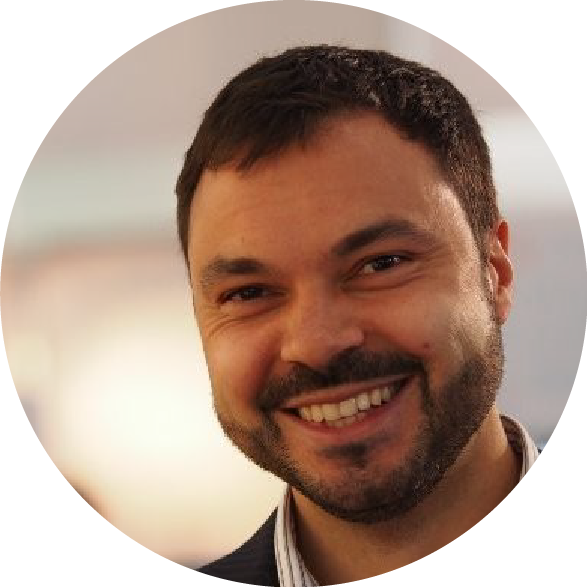
Florian Meier
Postnova Analytics GmbH
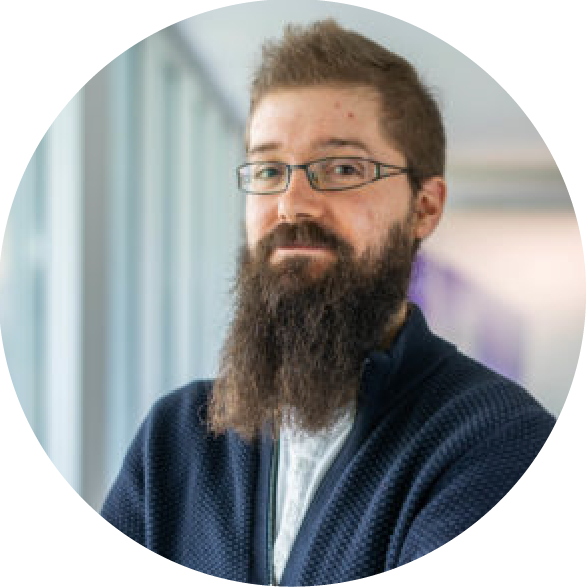
Juan Gallo
INL
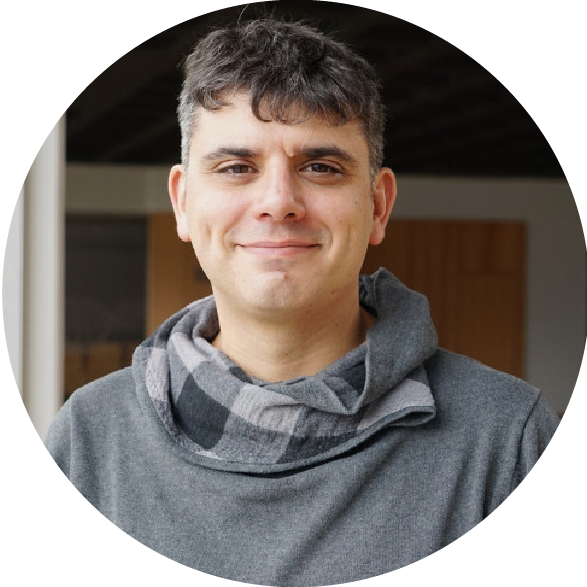
Marcos Garcia-Fuentes
USC
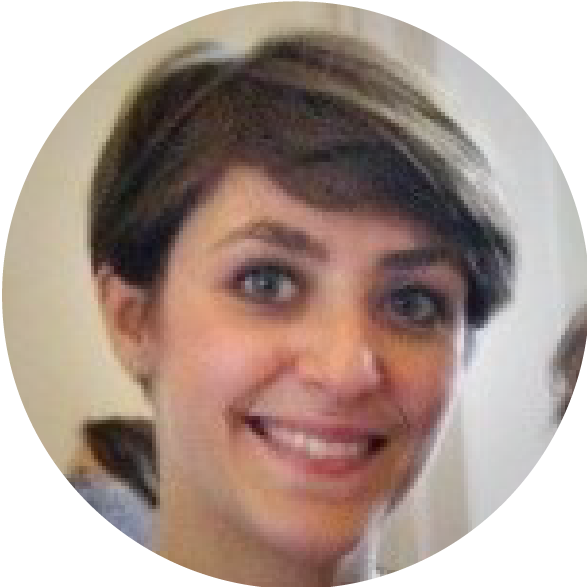
Alice Gualerzi
Fondazione Don Carlo Gnocchi
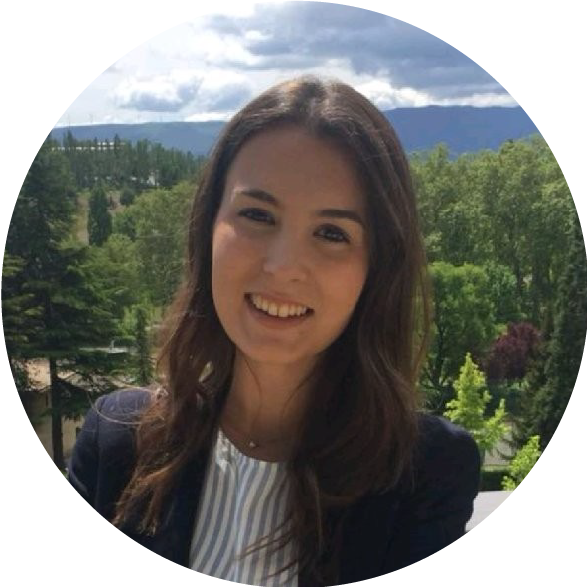
Natalia Herrero-Alvarez
CIC biomaGUNE

Joanna Jankowska-Śliwińska
Institute of Electron Technology
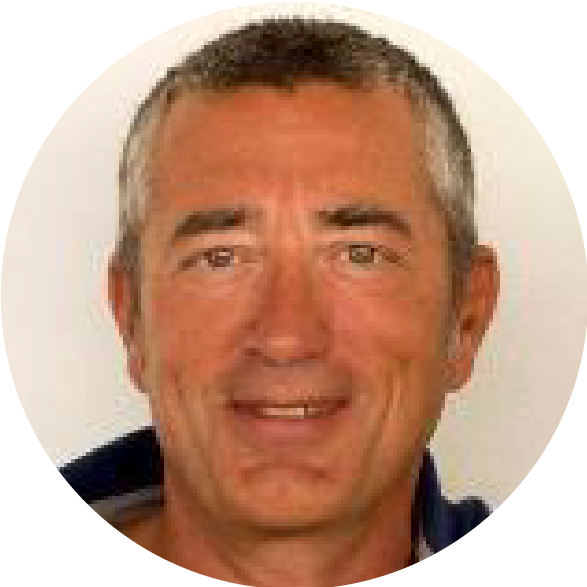
José M. Martínez-Costas
CiQUS - USC

Ida Kokalari
University of Torino
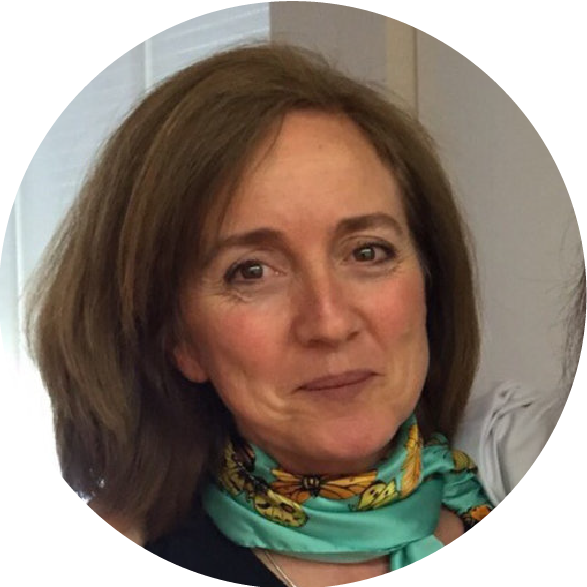
Mónica López Fanarraga
Universidad de Cantabria - IDIVAL
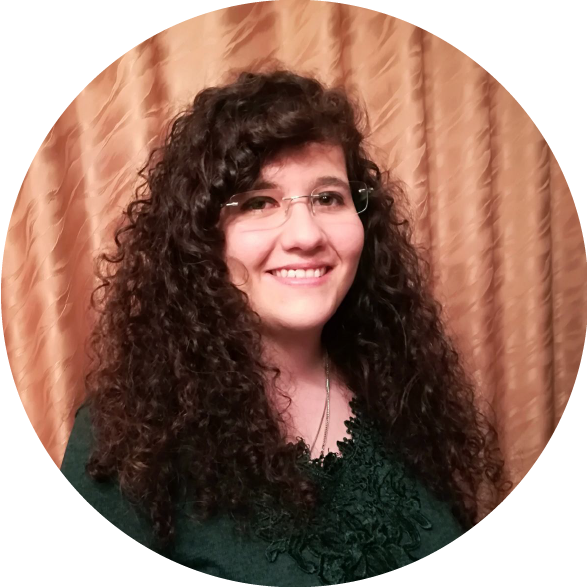
Nuria Lafuente Gómez
IMDEA Nanociencia
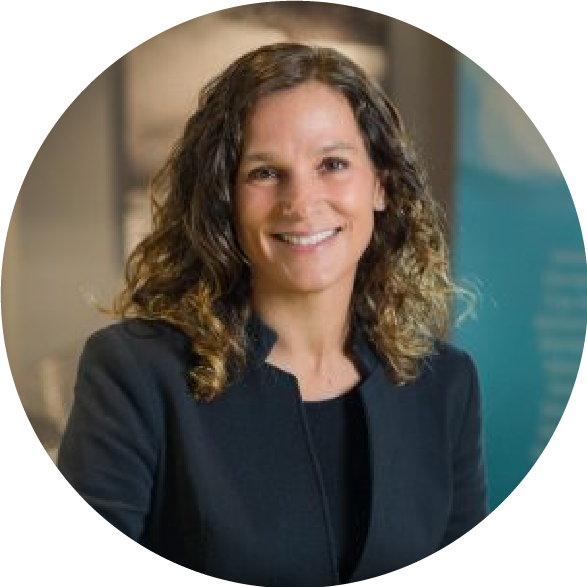
Iraida loinaz
CIDETEC
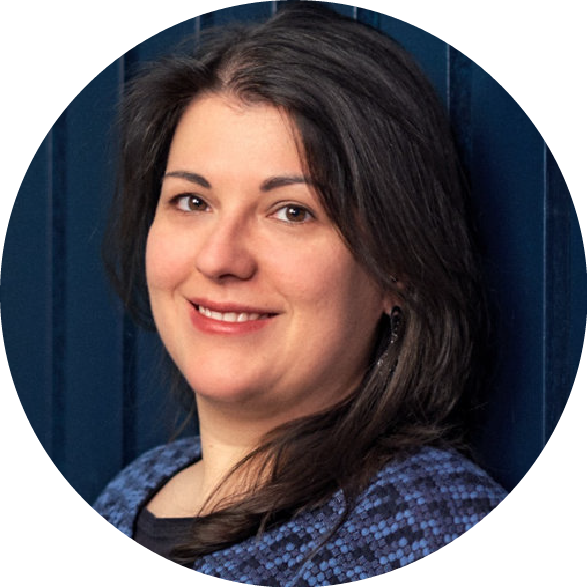
Gabriela Simone Lorite
University of Oulu
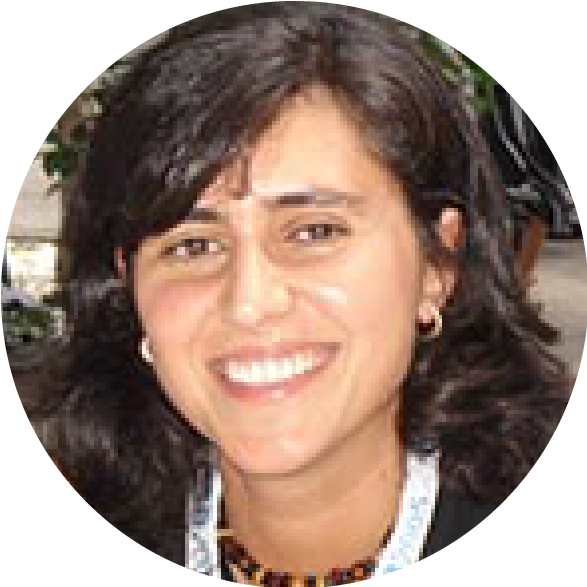
M. Cristina Martins
INEB / i3S
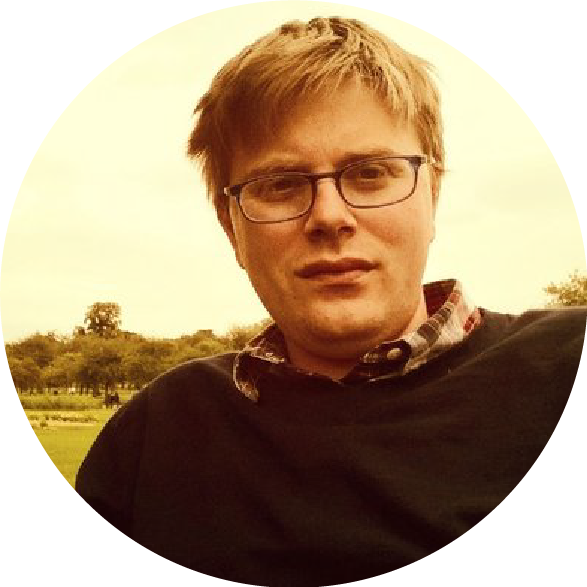
Carlo Morasso
ICS Maugeri IRCCS
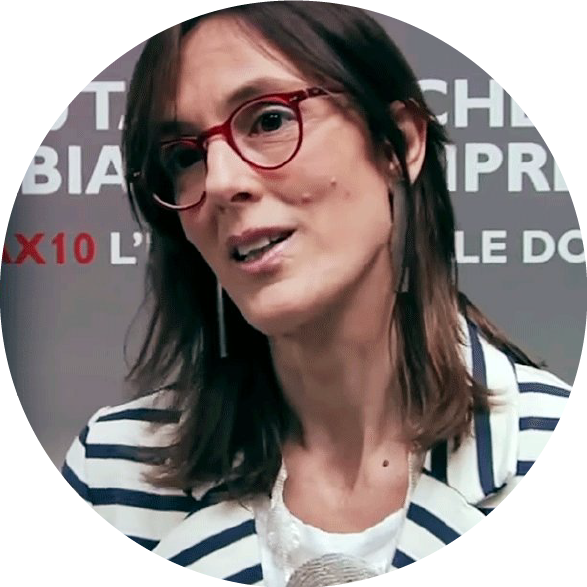
Margherita Morpurgo
University of Padova
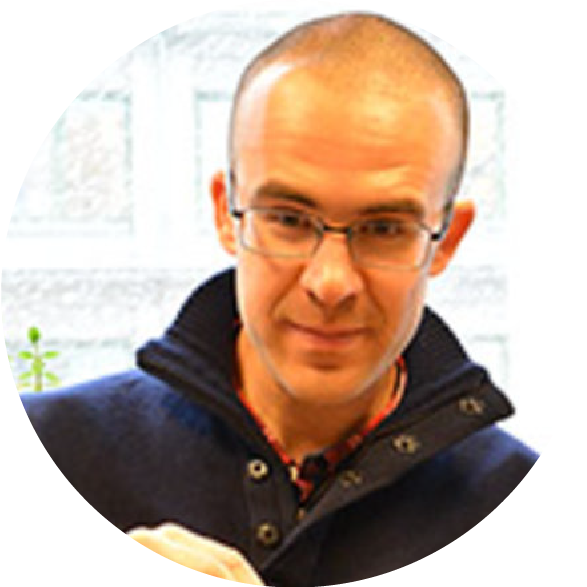
Nikolas N. Daskalakis
National Formulation Centre
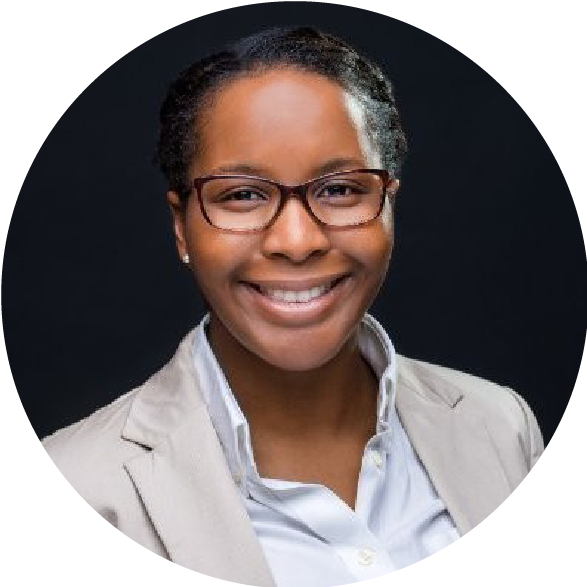
Helen Nneka Onyema
Fraunhofer IMM
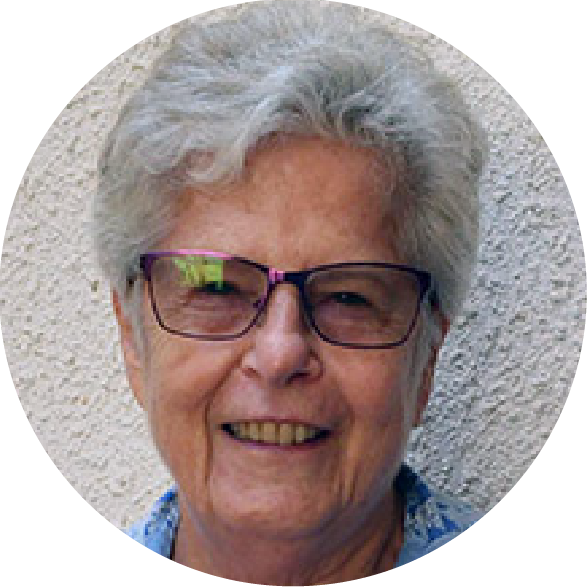
Ariella Oppenheim
Hebrew University of Jerusalme

Paula López Martínez
CiTIUS
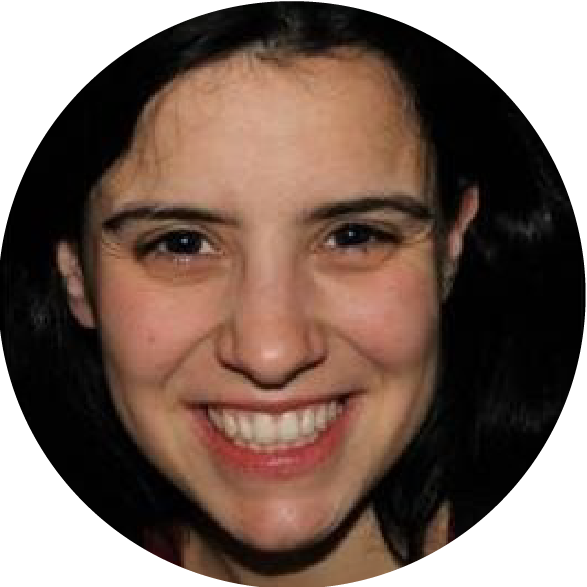
Beatriz Pelaz
CiQUS
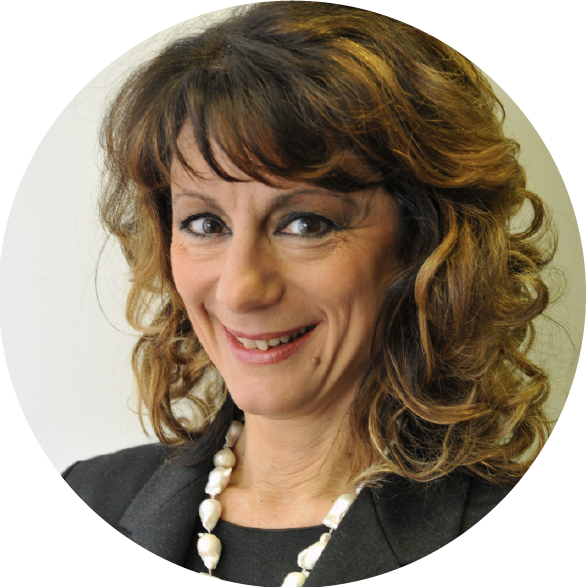
Graziella Pellegrini
University of Modena and Reggio Emilia
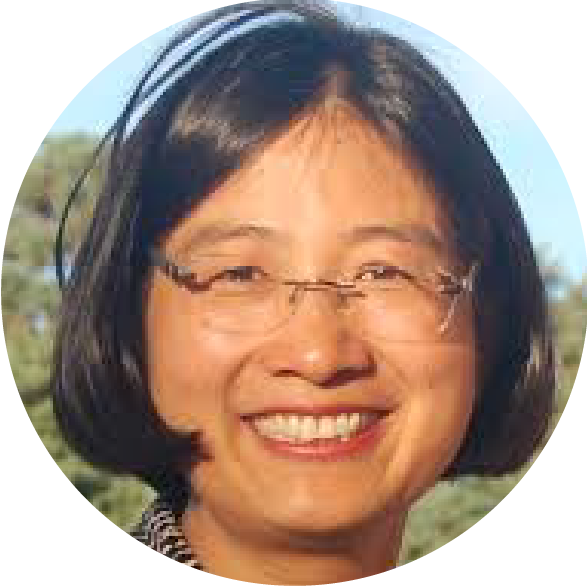
Ling Peng
CNRS
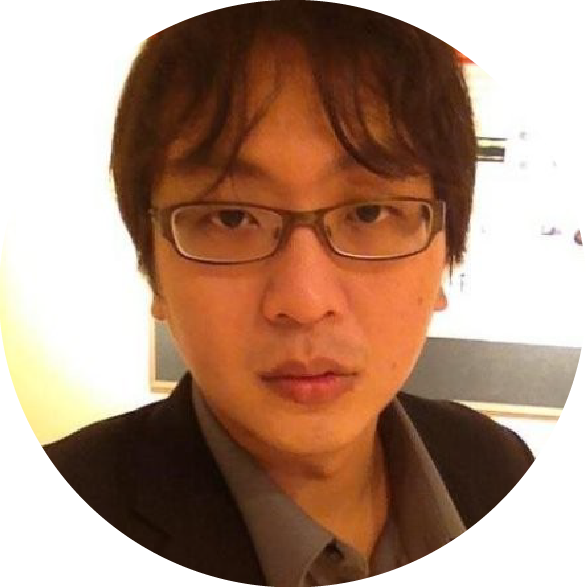
Weng Kung Peng
INL

Chantal Pichon
CNRS - Université d'Orléans
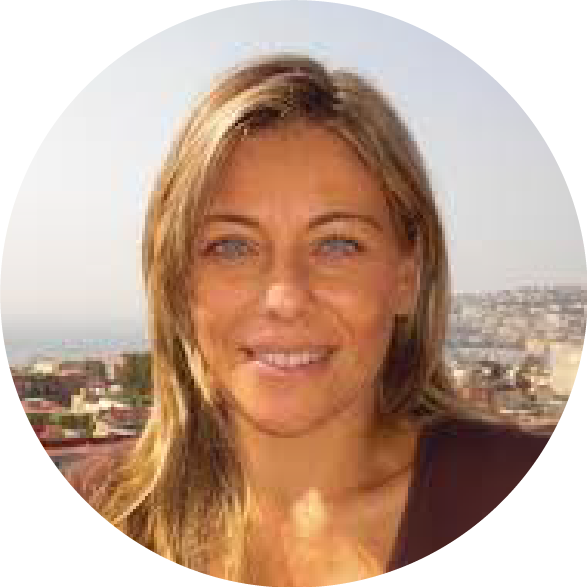
Fabiana Quaglia
University of Napoli Federico II
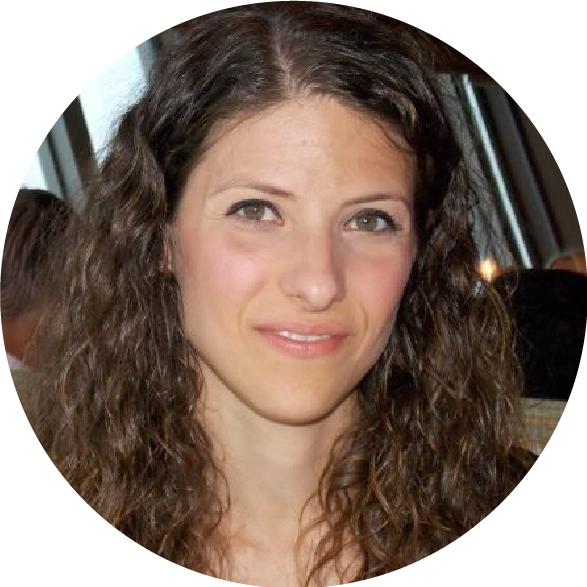
Giuseppina Sandri
University of Pavia
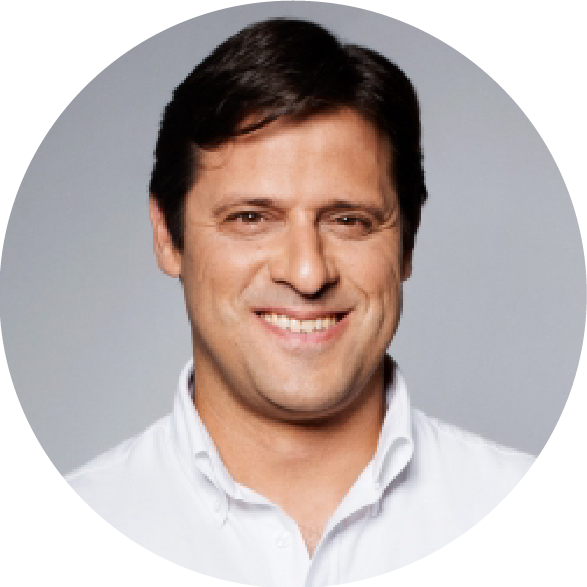
Nuno C. Santos
IMM Universidade de Lisboa
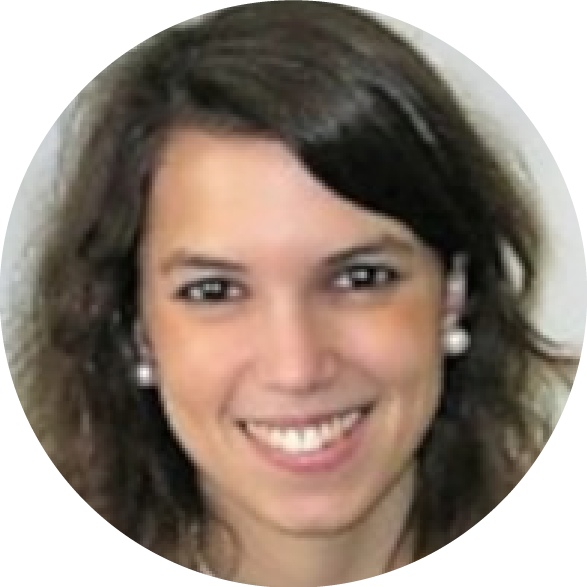
Rita Sobral Santos
LEPAGE - University of Porto
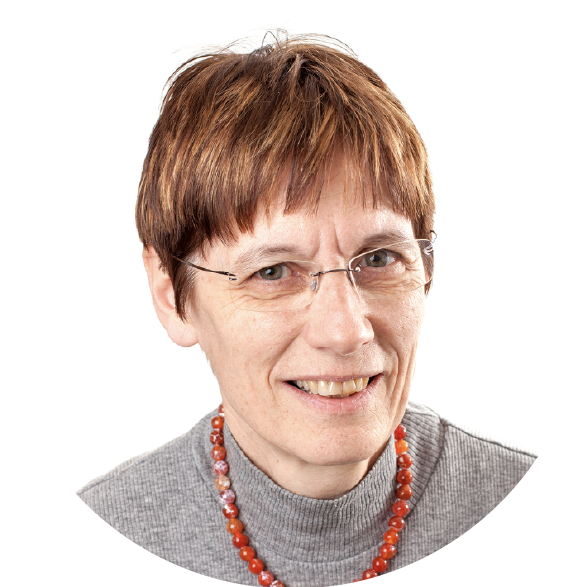
Ruth Schmid
SINTEF AS

Simó Schwartz
CIBBIM-Nanomedicine

James Simon
Cenya Imaging B.V.
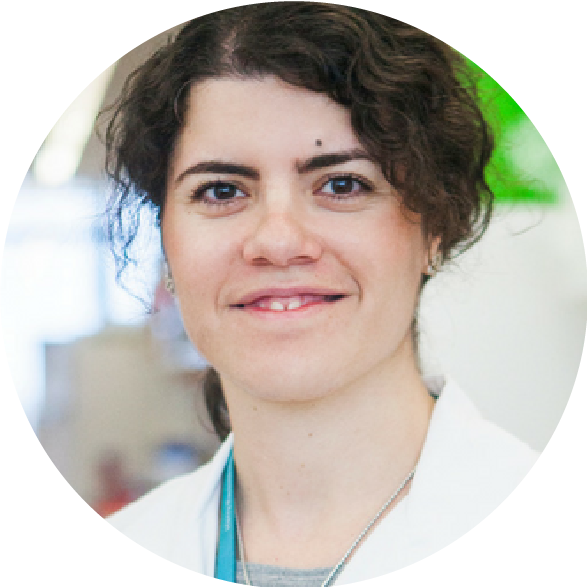
Anabel Sorolla
Harry Perkins Institute of Medical Research, Australia
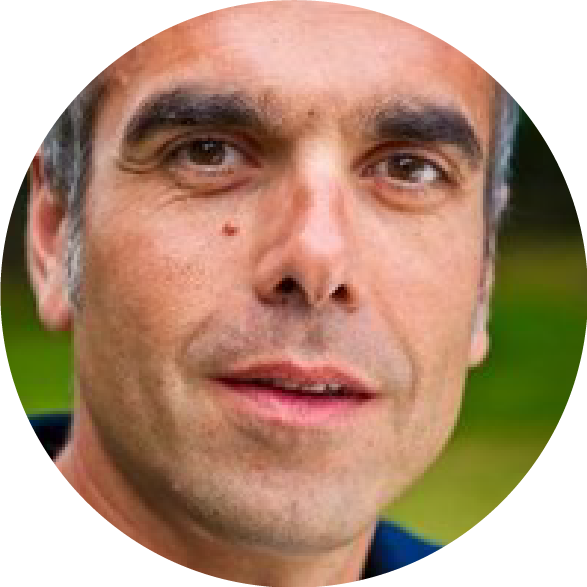
Salvatore Sortino
University of Catania
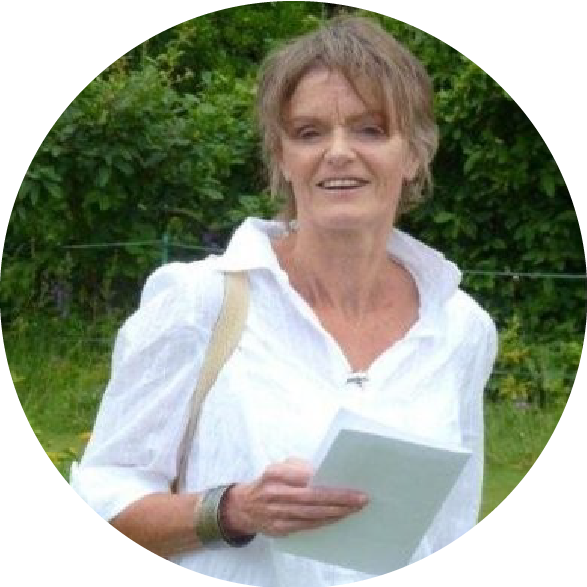
Su M. Metcalfe
LIFNanoRx - University of Cambridge
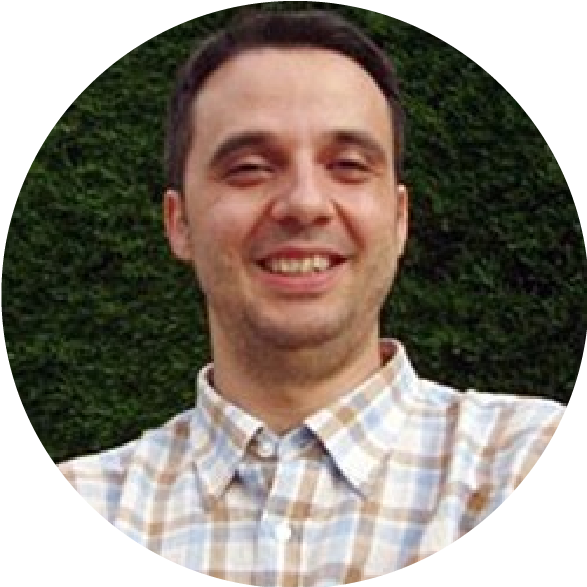
Pablo Taboada
University of Santiago de Compostela

Fernando Torres Andón
Universidade de Santiago de Compostela
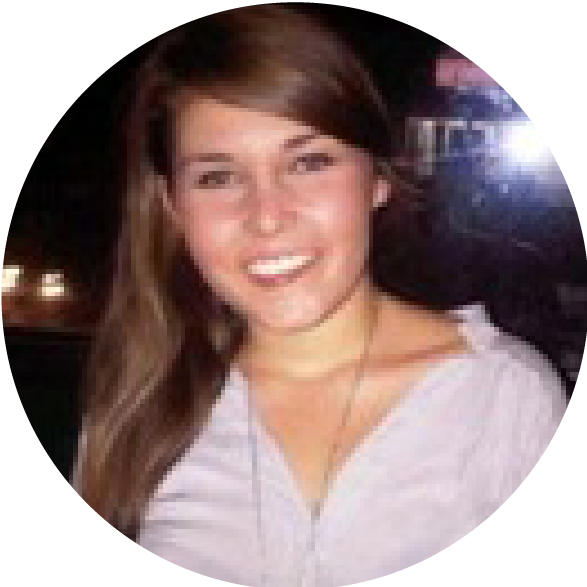
Diana M Vasquez
International Park of Creativity
